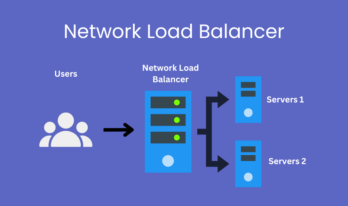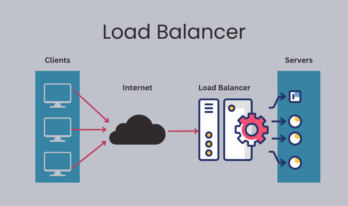Introduction:
Video games have a long history of influencing our daily lives. As games become more realistic, they are also teaching Artificial Intelligence new skills. How current video games are designed is a ground for Artificial Intelligence. These virtual worlds offer opportunities for Artificial Intelligence systems to acquire skills that can be applied to real-world scenarios. However, as Artificial Intelligence learns these skills, there are positive and negative consequences to consider. We will explore five skills Artificial Intelligence can learn from video games, the potential benefits, and the challenges they may pose.
What are some of the skills Artificial Intelligence can learn from video games?
Problem Solving:
Video games are full of complex challenges and puzzles that require creative problem-solving. Artificial Intelligence can learn to analyze situations, identify patterns, and devise strategies to overcome obstacles. This skill can be immensely beneficial as it can help in making things better in various real-world applications like:
Healthcare: Artificial Intelligence can assist doctors in diagnosing illnesses by analyzing medical data and suggesting treatment options.
Engineering: Artificial Intelligence can optimize designs, solve engineering problems, and improve efficiency in manufacturing processes.
Negative Outcomes:
Overreliance: Over time, humans may rely too heavily on Artificial Intelligence for problem-solving, potentially leading to a decline in critical thinking skills.
Ethical Dilemmas: Artificial Intelligence-driven problem-solving may raise ethical concerns when making life-altering decisions, such as in legal or medical contexts.
AI Video Games: Adaptation and Learning
Many video games employ adaptive Artificial Intelligence algorithms, which learn from player behaviour and improve over time. These algorithms are essential for AI's capacity to adapt to new situations, environments, and data. The implications are significant:
Personalization: AI-driven recommendation systems can provide tailored content, such as personalized news feeds or product recommendations.
Autonomous Systems: Self-driving cars and drones can continually learn from their experiences, becoming safer and more efficient.

Negative Outcomes:
Privacy Concerns: Learning algorithms can raise concerns about data privacy when they gather and analyze personal information.
Security Risks: Adaptive Artificial Intelligence may be exploited or manipulated if security measures are not robust enough.
AI Video Games: Strategy and Decision-Making
Many video games, especially real-time strategy games, require Artificial Intelligence to make strategic decisions in dynamic environments. This skill is crucial for Artificial Intelligence in various applications:
Military and Defense: Artificial Intelligence can assist in strategic planning, threat analysis, and defence and national security decision-making.
Business Optimization: Artificial Intelligence can optimize supply chain logistics, marketing strategies, and resource allocation.
Negative Outcomes:
Lack of Accountability: In critical applications, if Artificial Intelligence makes a wrong decision, accountability becomes a complex issue, raising questions about responsibility.
Bias Amplification: If Artificial Intelligence algorithms are trained on biased data, they may perpetuate and amplify existing biases in decision-making.
AI Video Games: Coordination and Teamwork
Multiplayer video games often require Artificial Intelligence to collaborate with other Artificial Intelligence or human players. These skills are transferable to scenarios where Artificial Intelligence interacts with humans or other machines:
Healthcare Assistance: Artificial Intelligence can collaborate with healthcare professionals in diagnostics, surgeries, and patient care.
Robotics: Artificial Intelligence-powered robots can work alongside humans in manufacturing, construction, and hazardous environments.
Negative Outcomes:
Ethical Challenges: Coordinated Artificial Intelligence actions raise ethical concerns, particularly regarding issues of consent, privacy, and transparency.
Dependence: Overreliance on Artificial Intelligence collaboration might reduce human skills and interpersonal interactions.
Risk Management and Resource Allocation
Resource management is joint in many video games, where Artificial Intelligence learns to allocate resources efficiently. This skill can be applied to optimize resource use in various fields:

Disaster Response: Artificial Intelligence can help allocate resources in real-time during natural disasters or emergencies.
Energy Efficiency: Artificial Intelligence can optimize energy consumption in smart grids and buildings, reducing waste and costs.
Negative Outcomes:
Unintended Consequences: AI-driven resource allocation decisions may lead to unforeseen consequences that harm the environment or society.
Lack of Human Judgment: In critical situations, a purely AI-driven approach might need the more nuanced judgment of human decision-makers.
Conclusion:
Video games have become a unique playground for Artificial Intelligence to acquire essential skills like problem-solving, adaptation, strategy, teamwork, and resource management. According to ExpressVPN's piece, these skills have transformative potential, benefiting various sectors and improving human life. However, they also bring ethical, privacy, accountability, and dependence challenges.
Developers, strategists, and society must address these challenges responsibly to get the best out of AI's capabilities. Striking a balance between AI's autonomous learning and human oversight is critical to maximizing the benefits while minimizing the risks of Artificial Intelligence acquiring these skills from video games. As the relationship between Artificial Intelligence and video games continues to evolve, careful consideration and ethical principles should guide this exciting journey.
Read More:
Small Business, Big Impact: The Rise of Extended Reality in SMB Corporations




